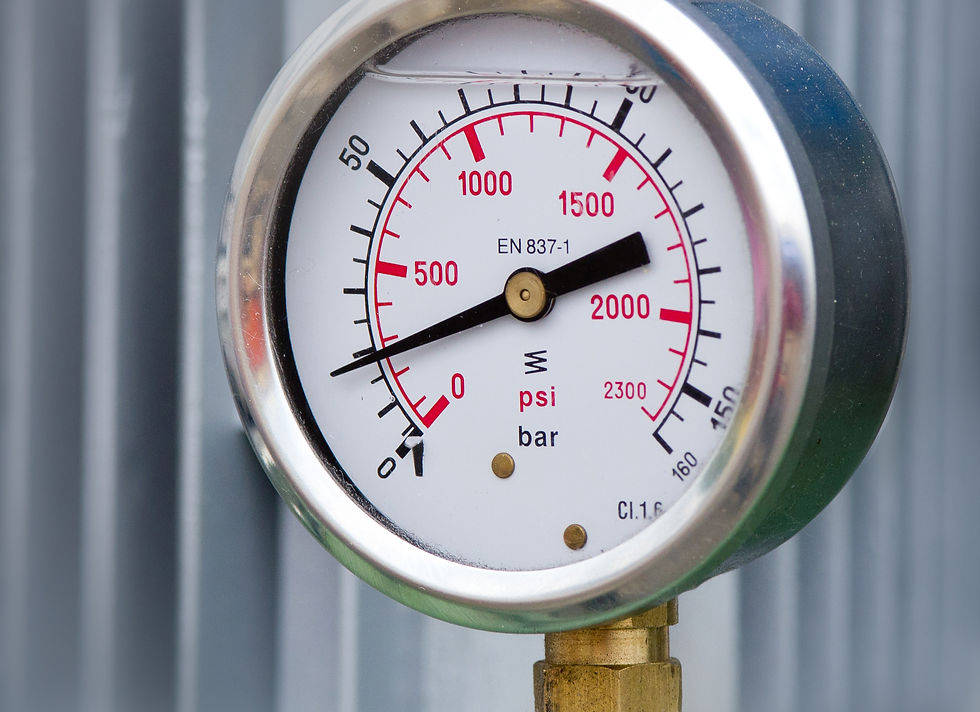Stress and High Blood Pressure: Understanding the Link & Simple Ways to Reduce Risk
- dazeflowernaturopa
- Jun 6
- 3 min read

Stress can be positive or negative depending on a person’s perception. Positive stress can be viewed as having the pressure to meet a goal but enjoying the associated tasks, and it is usually not as concerning. Negative stress provides opposite feelings and is one we can do without because of its potential to contribute to the development of conditions such as high blood pressure (hypertension). According to the Centers for Disease Control and Prevention (CDC), about 48.1% of adults in the United States have high blood pressure, with rates being higher in men than women and higher in non-Hispanic black adults.1 High blood pressure increases the risk of developing heart disease and stroke and can ultimately cause death if not controlled.
The Medical Subject Headings defines stress as an improper behavioral and hormonal reaction to outside factors and conditions, not viewed as normal, affecting the regular function of our bodies.2 Stress can be physical and psychological, with psychological stress known to contribute to the development of high blood pressure. 3,4 Psychological stress factors are recognized as those that cause us to feel overwhelmed and can be attributed to lifestyle factors like work, relationships or lack thereof, socioeconomic status, and racism.
Aspects of these factors that contribute to the development of high blood pressure include increased job strain from high workloads and feelings of a lack of control over outcomes at work.3 Social factors include having no social support, marital stress from interactions that cause friction between couples living together, and relationships that lead to feelings of unhappiness or tension within relationships.3 A low socioeconomic status comprises low education levels, being underpaid or unemployed, and living in unsatisfactory conditions that do not promote healthy habits. Some examples of these conditions include unsafe environments that make it difficult for people to leave their homes, promoting sedentary behaviors, and food deserts where neighborhoods lack fresh foods and have more fast foods, liquor stores, and quick marts. Racial discrimination involves suffering from unfair treatment, stereotypes, social exclusion, and acts of verbal or physical aggression at the interpersonal, institutional, and cultural levels.3 Psychological factors can trigger physiological changes that increase blood pressure.
Although many studies reference the lack of evidence sharing exactly how stress increases blood pressure, a common event that happens when stress occurs is the continuous activation of our sympathetic nervous system2-4, which is associated with our flight or fight responses. Activation of this system causes the body to respond by releasing hormones like epinephrine and norepinephrine, which affect the heart. One study found an increased risk of high blood pressure with high levels of stress hormones in the urine test of participants.4 Effects of these hormones on the heart include increasing the tone, or contractability, of blood vessels, increasing heart rate, the strength of the heart contraction, and controlling the balance between sodium and water in the kidneys. All these actions are known to increase blood pressure. In my previous post, 4 Effective Ways to Reduce Blood Pressure Naturally, I provided more details about how some of these factors can cause high blood pressure.
Coloring, yoga, meditation, deep breathing, getting out in nature, and exercising are some ways that may help relieve stress. Stress relief is unique to each individual and should depend on what the individual feels is helpful. Choosing activities that will enhance health and not hinder it is important. For example, turning to food for comfort may reduce stressful feelings but can potentially lead to negative consequences if engaged frequently, such as weight gain and, ultimately, obesity, which is responsible for promoting conditions like high blood pressure. Healthy alternatives to relieve stress are key in reducing the risk of developing such a condition and can be explored alone, with friends and family, or with the help of a healthcare provider.

This post is intended for educational purposes only and does not substitute for medical advice. Working with your healthcare provider is important for incorporating health practices and managing chronic conditions safely.
References
Centers for Disease Control and Prevention. (2025). High Blood Pressure Facts. https://www.cdc.gov/high-blood-pressure/data-research/facts-stats/index.html
Elsaid, N., Saied, A., Kandil, H., Soliman, A., Taher, F., Hadi, M., Giridharan, G., Jennings, R., Casanova, M., Keynton, R., El-Baz, A. (2021). Impact of stress and hypertension on the cerebrovasculature. 26(12).1643-1652, https://doi.org/10.52586/5057
Spruill, T.M. (2010). Chronic Psychosocial Stress and Hypertension. Curr Hypertens Rep.12(1). 10-16. doi: 10.1007/s11906-009-0084-8
Inoue, K., Horwich, T., Bhatnagar, R., Bhatt, K., Goldwater, D., Seeman, T., Watson, K.E. (2021). Urinary Stress Hormones, Hypertension, and Cardiovascular Events: The Multi-Ethnic Study of Atherosclerosis. Hypertension. 78(5). 1640-1647. https://doi.org/10.1161/HYPERTENSIONAHA.121.17618

Comments